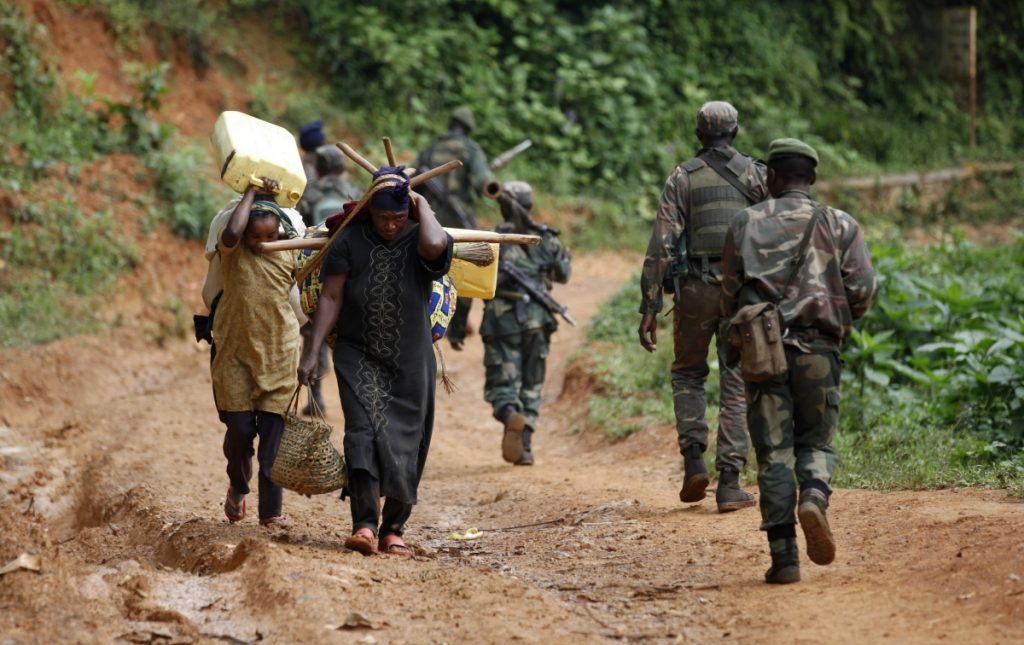Kenny Katombe/Reuters
By
Ogunniyi Abayomi
The declaration of India as an independent state on the 15th of August 1947 enacted the struggle and movement of independence across African states.
African scholars and intellectuals return to their native land after a long educational sojourn in Europe to tackle and create an autonomy for its people to be liberated from the injustice and unfair treatment of the colonialist.
Reforms and different political policies were evolving among various nationalists across the Anglophone and Francophone countries whose radical march and thought provoking speeches against the colonial decree on Africans and their system of government were liberating tools for the freedom of its people.
The march began and the protest persisted, paving the path of socio-economic success for some countries while the downfall of another began when colonialists left their country with policies and structure they could not adopt, nor could they organise a system suitable to the people which led to a rigid government known as totalitarianism.
Unity across the continent of Africa is an elusive task on the selfish and avaricious platform placed ahead of the values by our leaders who transferred the ideology into the mindset of its followers. Political powers are hereditary, a life sustained ideology against the democratic procedure was thwarted by the election of a new breed of individual to destabilize and disorganise the political affairs of their country. Africa is a continent of disjointed tribes and cultures whereby individuals rule differently bearing the same name and identity with a different tongue, an example could be traced by the division in Congo, being the Democratic Republic of Congo and Congo Brazzaville, likewise Sudan cannot be excluded in the factional division in the place of Central Sudan and South Sudan respectively.
Our understanding of unity has to be clarified. What is unity to the African continent and its importance? The clarity of these to our understanding and its effect on African society is a view for the formality of ensuring a strong and developed society that can compete with the standard of world politics.
Coming together as individuals and groups of various people, language, culture and religion towards the attainment of social, political, economic and religious goals can be built on the rhythm of war and chaos building an atmosphere of ethnic differences despite the colour. Freedom is obscured when I trample and infringe on the right of objecting to a difference between my language and culture rendering a derelict state to the condition of our society. A closed mind to liberal thought and ideology among individuals and groups is visible if the essence of unity and togetherness are not enacted to promote development, whereby it’s a recluse of a potential that cannot be harnessed.
Unity, a state of being one, is a complex phenomenon in a state torn apart by war and genocide. Rwanda, Somalia, Sudan and Sierra Leone wade through our minds like water yet we forget the dictatorial regime across western and northern Africa that disrupts this ideology. A ‘chaotic atmosphere’ is a close description of a society of divided values, thought and agenda; to be expressive of human rights is compared to attempted suicide when you are not guilty of your actions for the love of your community.
The ideology that led to the establishment of the African Union, formerly known as Organisation of African Unity, proves futile when the agenda of creating a continental Union of African State, as propounded by the late Kwame Nkrumah on the 24th of May 1963, was not actualised.
The late Ghanaian Nationalist enforced a motion in his brilliant and inundated speech that ensued Africans to unite now or perish, a prophetic statement against the emotional propensity that his statement gauged in the minds of African leaders. At this time and period a few African states had just gained their freedom from the colonial imperialist, gathering together at Addis Ababa, Ethiopia were African Leaders who sought for ways to unite the continent.
The foresight of collaboration among African states to stand as one continent like the America we emphasized today collapsed after much deliberation on the development it would render to the black community. How well would it fare if Nigerians, Ghanaians, Kenyans, Egyptians and several states of the continent shared the same ideology and vision whereas it is a fiction against its potency of a realistic approach after its subliminal failure to accept it.
Then we question the essence of our independence? Kwame Nkrumah in his ever brilliant rendition created the view by saying thus:
“Independence is the only prelude to a new and more involved struggle for the right to conduct our own economic and social affairs; to construnct our society according to our aspiration, unhampered by crushing and humiliating neo-colonialist control and interference.“
An imperative on enacting for the unity of African states, he emphasized further in his statement rendering a prophetic statement in place of an affirmation saying thus;
“No sporadic act nor pious resolution can resolve our present problems, nothing wil be of avail, except the united act of a united Africa.”
Neither do we incline to this because of the roaring selfish ego among our leader absconding the essence of this notion rather we see countries seeking secession which is an alluring ideology Africa, my Africa believe to be the lasting solution to the political and economic defect.
Concisely, the view of a political kingdom could not help envisage the vision when he said thus;
“African unity is above all, a political kingdom which can only be gained by a political means. The social and economic development of Africa will come only within the political kingdom not the other way round.”
The rejection changes the story that we no longer view ourselves as Africans but a divided region of ethnic differences.
How long will it end is the question we now ask? Now, or will it persist forever in a continent divided by language, tribe, colour and character?



No Comments Yet!
You can be first to comment this post!